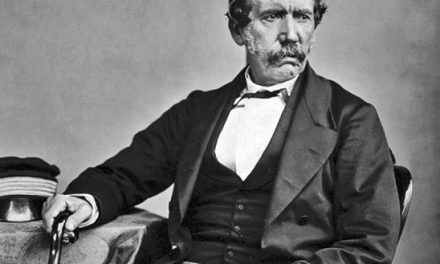
Film Review – MARGIN CALL
Outlet: MR VIDEO, Nelson Mandela Avenue
Film: Margin Call
Director: J. C. Chandor
Screenplay: J.C. Chandor
Players: Kevin Spacey; Stanley Tucci; Demi Moore; Paul Bettany; Zachary Quinto; Simon Baker
Genre: drama; true-life drama
Rating: ***½
‘Margin call’ is the financial term which refers to a situation when the margin posted in the margin account is below the minimal margin requirement, so the broker or exchange issues a ‘margin call’. This creates options for the investors: either to increase the margin that has been deposited or to close out their position. They can do this by selling the securities, options, or futures if they are long or by buying them back if they are short. If they do neither of these then the broker can sell their securities to meet the margin. If this happens unexpectedly, it can cause a domino effect of selling which leads to other margin calls, effectively crashing an asset class or group of asset classes.
And so started the financial collapse of 2007-8: this is documented in this film over a thirty-six hour period, which is suggestive of Greek tragedy. An ensemble cast, playing an assortment of traders and risk analysts, are forced to face the inevitable fact that the ‘numbers simply do not add up’. There are many references to the idea of ‘numbers’ in this film.
The Risk Manager at a large investment company, Eric Dale (Tucci), is fired after 19 years’ loyal service, allegedly not because of his performance or personality. Indeed, no particular reason is offered by Sam Rogers (Spacey), a trader and his immediate superior. Rogers can appear sensitively humane on the issue of his dog’s dying with liver cancer and remarkably prosaic, not to say callous, on the question of firing his unsuspecting employee with a terse offer (valid for twenty-four hours only) of six months’ severance pay and half his salary. Dale is brusquely escorted from the premises, with two white cartons of personal goods and without access to his computer or his cell phone – but not before handing over a memory stick containing his current workload to a grateful subordinate, with the caution to ‘Be careful’.
Rogers, with the charm and aplomb of the successful financial salesman, reassures the employees on his floor, flattering them with the assertion that such pruning of personnel means that those who stay are considered the best, the survivors, and simultaneously exhorting them to strive to greater heights. He sails from the workplace to the painful prospect of putting down his dog humanely at the vet’s: the irony is painfully obvious.
Thus begins a fairly static but verbally-athletic situation, where employees are claustrophobically closeted in the workplace, arguing with angst throughout the night on the solution to the insoluble. Two traders, Seth Bregman and Will Emerson (Bettany) are called back by Peter Sullivan (Quinto), an erstwhile rocket scientist with a high IQ – and the risk analyst to whom Dale consigns his memory stick.
Part of the fascination with this film stems from the array of personalities and the pragmatism which abounds throughout the crisis. By degrees, the senior personnel are pulled from their beds to convene at the office, culminating in the arrival of John Tuld (Irons), the Chairman of the Board. Will and Seth are despatched to coerce Dale into returning to the office. They glide through crowded nocturnal streets in Emerson’s obscenely expensive car, discussing the amounts of money they made the previous year. Seth, 23 and relatively inexperienced, made a quarter of a million; the brash, bold Emerson confirms the rumours of two-and-a-half million and later details the ease with which this amount can be spent. Emerson gestures to the street crowds and comments cynically, ‘They have no idea of what is going to happen’. He exhibits the arrogance of a Greek god surveying mortals with detachment.
Dale had been close to discovering that the company is short of options, unable to solve the knotty issue of the margin call. The horror which haunts them all is the prospect of the global consequences, with ‘eight trillion dollars around the world, relying on it’. Their formula is proved worthless, even though Sarah Robertson (Moore) claimed a conservative trading margin of 15%: aggressive traders take risks at 40%. As the creator of ‘the formula’ she is the ‘sacrificial lamb’ to bear the responsibility, the ‘scalp’ which is offered to the traders, although the monetary compensation may have proved comforting: Tuld promises that she will be ‘well taken care of’.
There are so many images of these Olympians on high, physically aloft in their skyscraper, with panoramic views of the city spread below, containing the mere mortals whose lives will be inevitably affected and possibly ruined by whatever the decision. Much of the financial implication is explained by Tuld through the metaphor of music: the music has now stopped and projections must be made of what the music will do next month or next year. He lectures his collection of acolytes: there are three ways to win – to be first, to be smarter, or to cheat. He does not cheat. Because ‘the numbers (another metaphor!) are just not there anymore’ Tuld decisively settles on being first, despite the repercussions for the organisation and for most of the employees. Tuld admits that ‘Most of us are not going to get out of this one’.
Characters nervously question, ‘Are we going to get fired today?’. The answer is inevitable from those who know that they will keep their jobs. Seth Bregman cries in a toilet, a brief glimpse of human emotion. The next day, the traders are assembled for another motivational speech from salesman Sam who outlines the process for the ‘fire sale’. If they are successful today, he tells them, they will successfully destroy their own jobs. Voiceover tracks Will’s slick efforts to maximise his returns; he starts with 93,5% of investment but is down to 63% by 15h30, as word has spread through the financial sector. $131 million dollars is lost on a single trade.
Tuld and Sam Rogers, as the prime movers, study the city below while Tuld pragmatically pontificates: he details every crash year, ‘the same thing over and over’, and confesses ‘We can’t control it all. There are winners and losers but the percentages stay exactly the same.’ In fact, he gleefully predicts that ‘There’s going to be a lot of money to be made.’
Sam, like Peter and Jared (Baker), know that they will keep their jobs; most employees will not. Sam goes to a home that is no longer his but belongs to his ex-wife, after a twenty-four hour stint of coercing others. He goes there in the dark to dig a hole for his dog and to mourn. It seems that Sam has much to mourn besides the death of his dog, not least of which is his part in the financial tragedy. The death and burial of the dog is a fitting symbol for the end of this film.











































